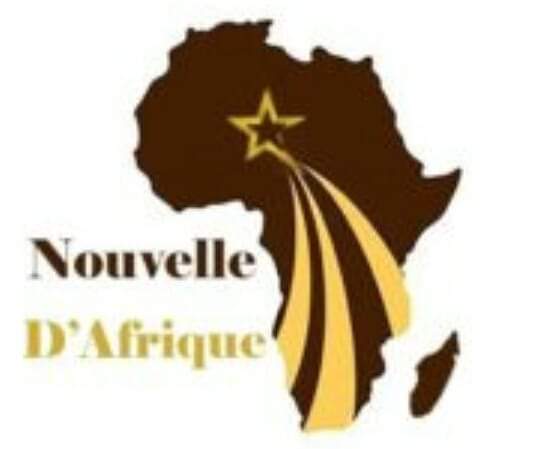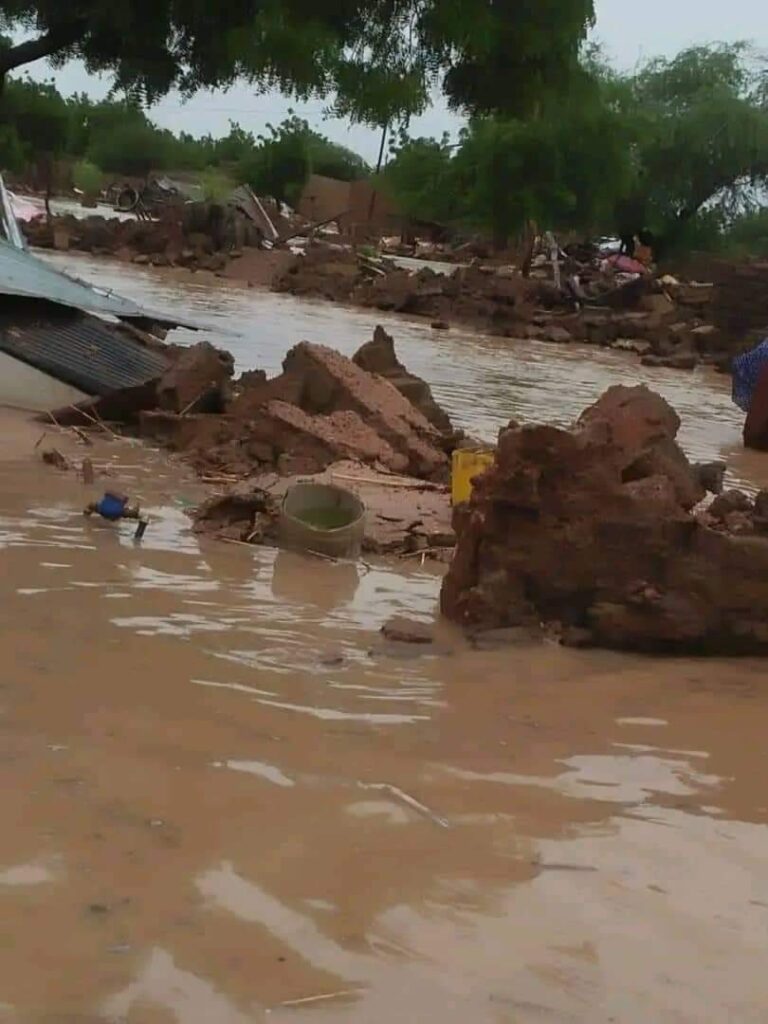0076/HAAC/01-2023/pl/P
Security issues, the AES, the current situation of young Africans, the political decision on the continent, the intervention of the AYUC as a solution.. .On all these hot topics, Rabby G.ndombassy, Executive President of the AYUC (African Youth Union Commission) speaks exclusively in “Africa News Room »
What is your vision for African youth and how do you think the commission can contribute to their development?
Rabby Ndombassy: My vision for African youth is based on Aspiration 6 (Agenda 2063): “An Africa whose development is driven by people”. I have a vision of a prosperous, united, developed African youth, 100% committed to the development of “the Africa we want”. Without having the constant thirst to abandon their continent and their countries.
The African Youth Commission is an essential tool for the development of our African youth, because our key word is “PARTICIPATION”, as we know in Africa its population is predominantly young, and our vision of youth development focuses oncertain pillars, such as: education and teaching, economic empowerment and active participation of young people in the political and social processes of their countries and the AU. African youth cannot be spectators in the development process of their countries and Africa, they must be active actors.
What opportunity do you see for African youth in the areas of Education, Employment and Entrepreneurship?
Rabby Ndombassy: There are many opportunities within us that still need to be explored in the best possible way.
Field of education: It is necessary to adapt the training programs of African countries according to our realities, because Africa is a continent rich in natural resources, and we need to train our young people in such a way that we have human resourcescompetent that we will work on the transformation of our natural resources without the need to export them to be transformed abroad, for this it will be possible to create programs to send young people abroad from Africa in search of know-how andcome back and apply in their respective countries and also train other young people.
We must also promote thé professionalization of our academic staff and a wide dissemination of science produced in Africa and the exchange of knowledge and culture between African nations, through protocols and mechanisms for academic exchange and communication. scholarships. Also noteworthy is the diversification of agricultural training programs in the most rural areas of African countries, providing family farmers with knowledge and tools to maximize local production which will contribute to the fight against hunger. Education in Africa must go hand in hand with the preservation of our African culture, because it is our identity.
Area of employability: The diversification of the economy and the promotion of entrepreneurship in African countries are key points for maximizing youth employment. Governments must, in collaboration with young people, analyze and formulate better employability mechanisms for young people, we believe that States cannot have the maximum responsibility for employment in the public sector. Hence the importance of greater collaboration and greater openness to the private sector and entrepreneurship to facilitate the maximization of employability.
Area of entrepreneurship: It is necessary to scale up orientation and strengthening programs for small entrepreneurs. Local governments should create appropriate strategies and funds to support local entrepreneurship, entrepreneurship training programs and startups so that they are well leveraged to later generate employment for other youth . It is also necessary to pay great attention to regional integration and the African Continental Free Trade Area, which can also be great allies for youth entrepreneurship, removing barriers to movement. Every great entrepreneur or business owner started as a small entrepreneur.
How will the Commission work with governments, civil society organizations and the private sector to achieve its objectives?
Rabby Ndombassy: The African Union Youth Commission (AYUC), since its establishment in 2017 during the 28th Ordinary Session of the African Union Heads of State and Government Summit in Addis Ababa, Ethiopia (January 21-30, 2017). It still works with the AU, governments and CSOs on a vision of cooperation and collaboration for the realization of youth instruments, such as the African Union Youth Charter.
Governments: we will be partners of local governments in the analysis and construction of youth policies taking into account international instruments intended for youth and will make visible the representation of young people from each country within the African Union and inlarge international structures. Always on the basis of mutual cooperation and social stability.
OSC: Through the representations of AYUC-NACIONAL, we will work with the National Youth Councils and Ministries of Youth to organize youth initiatives and CSOs, so that they contribute to the development of the country and to the realization of the PND – National Plandevelopment of each African country.
Private sector: each private sector has a social responsibility that it must assume, we will be the main agents of mobilizing the private sector so that it becomes more involved in supporting the youth initiative, promoting internships and programs of training, in the vision ofAU Agenda 2063.
How do you plan to use your expertise to influence policies and decisions that affect youth?
Rabby Ndombassy: As the leader of an African youth organization, I firmly believe that young people have a key role to play in building the future of the continent. My strategy for influencing policies and decisions affecting young people focuses on three main areas:
Evidence-based advocacy: I plan to use hard data and research on the realities of young Africans to present evidence-based proposals to policymakers and government officials. I believe that data-driven decisions are more likely to create a real and lasting impact on the lives of citizens, with a focus on young people.
Youth engagement and empowerment: It is essential to give voice to young people themselves. I will promote the direct participation of young people in discussion forums, community meetings and advisory groups, ensuring that their concerns and ideas are at the heart of policy development. Empowering young people is essential to ensure that they are seen as part of the solution, not just beneficiaries, actors and not viewers.
Strategic partnerships: I will seek to collaborate with other civil society organizations, international agencies and governments to broaden the scope of our initiatives and ensure that policies and decisions take into account diversity and needsspecific to African youth. Together we can more effectively influence policy agendas in areas such as education, employment and social inclusion
I am convinced that the combination of data, youth participation and strategic partnerships is the most effective way to ensure that public policies are truly transformative for young Africans.
What do you think of the AES countries?
Rabby Ndombassy: The Alliance of Sahel States, (is a mutual defense pact, which is moving towards a regional integration process created between Mali, Niger and Burkina Faso on September 16, 2023), with the aim to promote development and security in one of the mostdifficult in the world. The member countries of this alliance face a complex combination of threats, such as food insecurity, armed conflict, extreme poverty and, above all, the growing presence of terrorist groups.
I am happy to say the following in my observation on this new phenomenon on the African continent, looking at its dimensions;
Regional security One of the main objectives of the Alliance is to combat terrorism and the jihadist insurgency plaguing the region. Cooperation between the countries of this alliance is extremely important because one of the objectives for which the states joined forces was the need to confront these extremist groups, which easily cross their borders. This shael alliance strengthens collective defense capacity and military coordination, even if the challenges are still great.
Economic and social development
In addition to security, this Alliance seeks in my opinion to promote socio-economic development, by promoting trade between them, by constituting a platform for economic cooperation where the States of this alliance can channel their products. With a young population and high unemployment, the region urgently needs investment in education, infrastructure and job creation. To sustainably stabilize the region, it is essential that the Alliance continues to prioritize development in the medium and long term.
Regional solutions to regional problems
The Alliance represents an important effort for African countries to take the initiative to solve their own problems, without depending exclusively on external interventions. This model of regional cooperation can be an effective way to address common challenges across borders.
Young people as a solution
Given that the majority of the Sahel population is young, the Alliance has the opportunity to engage this youth as an effective and transformative force. Training, employment and civic engagement programs are essential to divert young people from radicalization and channel their energies towards the development of the region.
In summary, the Alliance of Sahel States is an initiative with great potential, but it still faces significant obstacles. Solving security, development and governance issues requires a joint and coordinated effort, both between countries in the region and with the international community.
What role can young people play in preventing terrorism and promoting peace?
Rabby Ndombassy: Young people must play a role as promoters of peace and the prevention of terrorism, that is to say, they must first be examined and feel part of the country’s development process through the through advisory boards with young people, where they canfreely express their respective opinions and suggestions, then create training programs in conflict prevention and management and allow graduates to reproduce the training obtained. young people should also be encouraged to create forums and debates on peace and security in the country. (I recommend that we collect more grants from Joel Cortez, to better answer this question)
Young people play a key role in preventing terrorism and promoting peace thanks to the many factors associated with it, such as their capacity for innovation, their energy and their ability to influence the future. Youth play an important role in preventing terrorism and promoting peace in various dimensions.
Young people can promote education for peace, encouraging dialogue on tolerance, diversity and human rights, leading awareness campaigns in schools, universities and social networks, which constitutes a space for intense interaction especiallyAmong young people, who are the biggest users today, they can demystify extremist ideologies and provide information about the devastating consequences that terrorism can bring.
Young people can get involved in social movements that promote peace and human rights. Whether through NGOs, community projects or grassroots movements, young people play an extremely important role as they can mobilize communities and create initiatives that address the underlying causes of terrorism, such as social inequality,exclusion and lack of opportunities.
As digital natives, young people have great potential to use technology constructively. They can counter extremist propaganda online by creating content that promotes peace, inclusion and intercultural dialogue. Additionally, they can develop or support digital platforms that provide safe spaces for discussions about conflict management and resolution.
The African continent is home to more than 20,000 ethnic groups, and young people from different cultures and religions can lead initiatives that encourage mutual understanding and cooperation between different groups. Exchange projects, youth forums and other cultural activities can help reduce prejudice and build bridges between communities.
Young people who already have some awareness of the consequences of extremism can serve as “influencers” in their social circles. They can identify signs of radicalization in friends and colleagues and help redirect them onto more constructive paths, whether through psycho-emotional support, participation in cultural activities, or participation in programs ofderadicalization.
In their communities, young people can promote conflict mediation initiatives and help resolve tensions before they escalate. They can become leaders of local dialogue and mediation initiatives, bringing people together and promoting cooperation rather than division.
Do you have a special word for President Ibrahim Traore?
Rabby Ndombassy: Your Excellency, Mr. President Ibrahim Traoré.
As a young leader of Burkina Faso, you represent a new chapter in the history of your country and your region. Your courage and determination to take the reins of the nation in these times of crisis demonstrate the immense potential of African youth to lead with vision, audacity and firmness.
You have the historic opportunity to channel the energy and talent of young people to transform Burkina Faso is an example of resilience and innovation. By investing in education, job creation and civic engagement, you can ensure that young people not only help combat current crises, but also build a prosperous and stable future for present and future generations.
Your Last Word
Rabby Ndombassy: The African Union Commission on Youth is ready to collaborate in building a Burkina Faso where peace, progress and hope flourish. Your leadership is an inspiration for many young people who recognize themselves in your ideas for building an ever better Africa.





